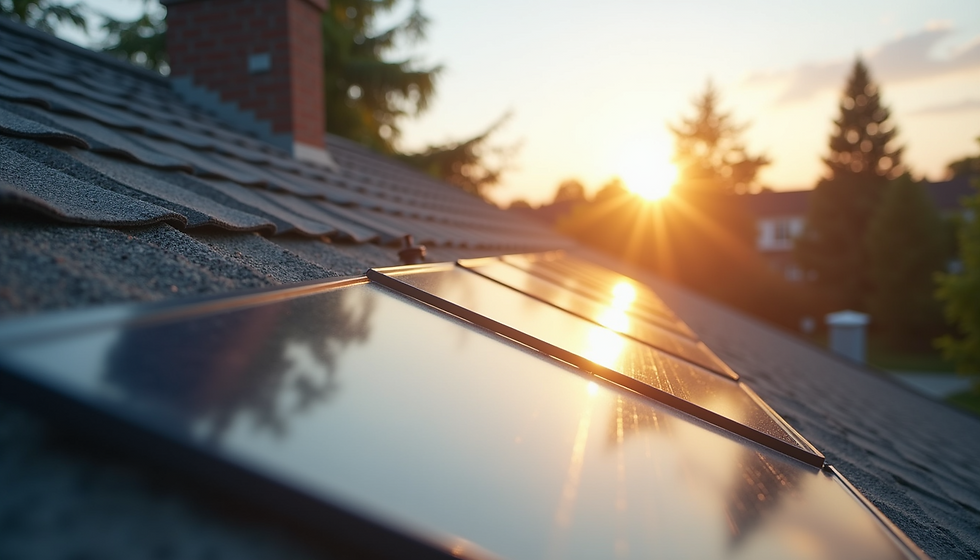Energy-Efficient Home Tips: A Guide to Sustainable Living
- Scott Loomis

- Jun 6, 2024
- 2 min read

Are you looking to reduce your carbon footprint and save on energy bills? Transitioning to an energy-efficient home is not only beneficial for the environment but also for your wallet. Here are some practical tips to make your home more energy-efficient and sustainable.
1. Upgrade to LED Lighting
One of the easiest ways to save energy is by switching to LED light bulbs. LED bulbs are more energy-efficient and have a longer lifespan than traditional incandescent bulbs. They also produce less heat, reducing the load on your air conditioning system during the hot summer months.
2. Seal Air Leaks and Insulate
Proper insulation and sealing air leaks can significantly reduce your heating and cooling costs. Check windows, doors, and vents for drafts, and seal any gaps with weatherstripping or caulk. Adding insulation to attics, walls, and basements can further improve your home's energy efficiency.
3. Invest in Energy-Efficient Appliances
When it's time to replace old appliances, opt for Energy Star-rated models. These appliances are designed to use less energy without sacrificing performance. This simple switch can lead to substantial long-term savings on your electricity bill.
4. Use Smart Thermostats
Smart thermostats allow you to program heating and cooling settings based on your schedule and preferences. By optimizing your HVAC system's runtime, you can avoid unnecessary energy usage and ensure your home is comfortable when you need it to be.
5. Harness Solar Power
Consider installing solar panels on your roof to generate clean, renewable energy for your home. While the upfront cost may be significant, the long-term savings on electricity bills and the environmental benefits make solar power a smart investment for energy-conscious homeowners.
6. Opt for Energy-Efficient Windows
High-performance windows with energy-efficient features like double-pane glass and low-e coatings can improve insulation and reduce heat transfer. This helps maintain a comfortable indoor temperature year-round while lowering the demand on your heating and cooling systems.
7. Practice Energy-Saving Habits
Simple changes in daily habits can also contribute to energy efficiency. Turn off lights and electronics when not in use, unplug chargers, and use energy-saving settings on appliances. These small actions can add up to significant energy savings over time.
Incorporating these energy-efficient home tips into your lifestyle can not only reduce your environmental impact but also lead to cost savings and a more comfortable living space. Making the switch to a greener home is a win-win for both you and the planet.
Embracing energy-efficient practices in your home is a step towards sustainability and cost savings. By implementing these tips, you not only reduce your energy consumption but also create a more comfortable and environmentally friendly living space. Let's make a positive impact by adopting energy-efficient habits in our daily lives.



Comments